What do you dream? This year, in our second annual “I Dream of Eugene” issue, we asked for your dreams for education, for music and for rivers in our city and Lane County. And from rivers made of chocolate to downtown streets full of percussion instruments, Eugeneans (and some folks from Springfield and Corvallis too) gave us their dreams, from the funny to the poetic to the political and wonky. Hold fast to your dreams, Eugene, and thank you for sharing them. — EW staff
What do you dream of funding in Eugene’s schools?
Abby Gershenzon
Parent, Eugene School District 4J
I dream of a 4J School District whose top funding priority is hiring more teachers, with the goal of bringing all classroom sizes down to no more than 20 students for K-5, and no more than 30 students for middle and high school.
I dream of a school district where school board members will no longer relegate the reduction of classroom sizes to the back burner, while backing expenditure after expenditure of the district’s limited funding to hire still more administrative staff and educational consultants, purchase new curriculum, adopt yet another standardized test or switch from semesters to trimesters, because they are told that this is the silver bullet that will magically improve student outcomes.
I dream of a school district where teachers’ input is highly valued and our children’s instructors are included in the decision making process at every level, with district funding readily available to back up their recommendations regarding all school-related issues, from buying new textbooks to choosing a schedule that is most conducive to learning.
Audrey Ziglinski
EW intern and senior at South Eugene High School
If I could direct money toward any purpose in Eugene schools, I would put it toward staff in order to reduce class sizes. The way each kid learns varies so much, and teachers cannot adapt to each kid’s learning style if they have to worry about teaching the material to 40-plus students. Most children also need a lot of direct attention and extra help in order to completely learn and understand the material they are being taught. Smaller class sizes have also proven to be a cost-effective strategy to lower the number of students who need to repeat grades or classes.
Personally, smaller class sizes make a dramatic difference for me. I am not the most naturally gifted when it comes to math, and although I currently have one of the best teachers at South, I find it very hard to learn and focus due to my class having around 40 kids. I have the potential to be successful when it comes to math, but I’ve found it just takes a little more time and attention from the teacher.
Tad Shannon
President, Eugene Education Association
As a teacher and parent of two kids who spent their entire school years in post-Measure 5 Eugene, I would hire more teachers and staff to bring down class sizes and restore enriching programs that have been cut. With more teachers and staff, we could individualize instruction and provide additional resources for struggling students. With more staff, we could restore rich programs in music, art and PE.
At the same time, I would like to see a return to the idea of “teaching to the whole child.” This would mean less emphasis on high-stakes tests, which have the effect of narrowing the curriculum. These moves would help restore the joy in teaching and learning. The future of our community depends on the quality of schools that we provide for all our children. It’s our responsibility as adults to do whatever is necessary to get there.
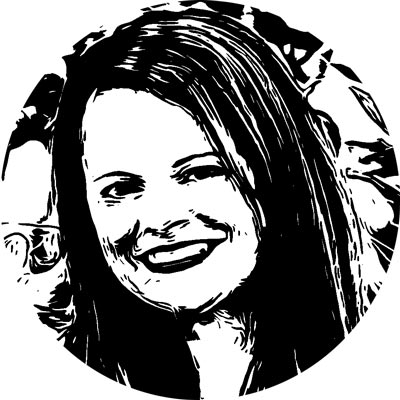
Sabrina Gordon
Reading specialist, Awbrey Park Elementary
If I could wave a magic wand and direct more money to Eugene schools, I would do two things. First, hire more teachers and classroom assistants to lower class size and provide each student with the opportunity to learn in a classroom where he or she can connect with the teacher, build a meaningful and positive classroom community and have individual needs met, whether it be the need for extra help, extra challenge or extra emotional support. Once a reasonable class size is accomplished, money would go to re-building opportunities for enrichment that every student deserves. Art, music, physical education, drama, world languages, debate, science, etc. — all of the things that spark kids’ imaginations and aspirations. These are the opportunities provided to students in elite and expensive private schools, and all of our children deserve nothing less.
Shelley Berman
Superintendent, Eugene School District 4J
Eugene’s educators have the vision, passion and talent to provide a world-class education to our students. What we don’t have is adequate funding. Many strategic investments would enrich students’ learning — such as a longer school year, additional early childhood education, expanded arts offerings and innovative career and technical learning opportunities. But there is one investment that would make the greatest immediate difference: hiring more teachers to shrink class sizes and reduce teacher workload.
Oregon has the nation’s second largest average class size. Eugene, too, has oversized classes, even though they’re a bit better than the state average. Smaller classes enable teachers to know their students better, personalize instruction to meet each student’s learning needs, plan interventions for students who need support and build classroom communities that facilitate learning. Our district seeks to provide classrooms where every student has rich and personal learning experiences. Smaller class sizes would help us reach that goal.
Tracy Ross
Assistant principal, North Eugene High School
If I could direct money toward any purpose in Eugene schools, I would put all the money into elementary education. I would bring class sizes down to 20 students in kindergarten to third grade and then limit class size to 25 in fourth and fifth grade. I would also build in full-time music, PE, library and computers so that every teacher had a 45-minute prep each day at every elementary school and would be required to use that time for planning. I would also add at least one classified instructional assistant to each classroom to assist students and do prep work for the teachers.
Then, I would provide after-school transportation for all students to participate in a one-hour after-school opportunity. I would want a variety of clubs and then a 30-minute invention or homework help time. For struggling students, it would be a requirement but open to all students for free. For non-struggling students, they could take two-to-six week enrichment classes. I believe in a strong foundation and 100-percent success rate in elementary school for students to be successful in secondary school.
Kelley Coplin
American Sign Language teacher, North Eugene High School
If I could direct money toward any purpose in Eugene’s schools it would be to increase the number of second languages offered in middle and high schools. Second languages prepare students to work in a growing global, multicultural and multiethnic society. Students gain insight into other cultures through the learning of second languages which in turn provides opportunities for personal involvement. This involvement fosters those cultural competencies which, in this day and age, are desperately needed.
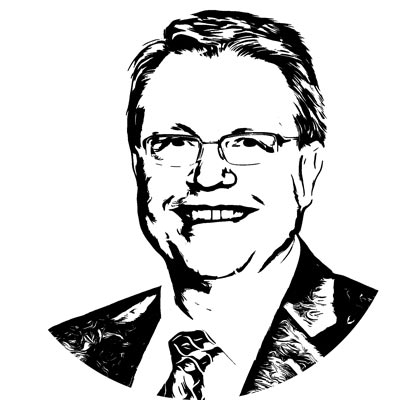
Colt Gill
Superintendent, Bethel School District
I would like to offer today’s students the experiences and opportunities I enjoyed in Oregon’s public schools in the ’70s and ’80s. I believe that if Eugeneans and Oregonians really understood that we are not supporting our children the way we were supported by our elders (voters and taxpayers) back then, they would come to the rescue so we could accomplish these four critical fixes to our schools:
1. Improve class size. We have the second highest class sizes in the country.
2. Increase instructional time. We [in Oregon] have one of the shortest school years in the country.
3. Meet rigorous standards in reading, writing and math but also provide a rounded education in the arts, music, humanities, financial literacy, social sciences, technology and career pathways.
4. Provide equity in access and support, meaning all students have access to all the programs schools have to offer, and some students are provided with the additional time and support they need to be successful.

Jim Torrey
Chair, Eugene 4J School Board
In building a child’s educational foundation, the ability to read is the single most important element. The quote I’ve heard most often is, “A student learns to read from K\kindergarten through third grade and reads to learn from that point on.” I would advocate for dedicated funding, by the Oregon Legislature, for early literacy. The Eugene 4J School District needs to put additional resources and staff support into our early reading efforts.
Eugene Education Foundation
Board of Directors
Each school year, Eugene Education Foundation receives grant proposals from 4J educators for the enrichment of students. Requests this year reach almost $300,000. So far, EEF gifts can fund $100,000. Our dream of community support for public education would be that, for the very first time, every request could be funded so no grant is left behind.
Grants give books to eager readers, transport homeless students to school daily, provide refurbished musical instruments to young musicians and bring artists in residence to schools to ignite creativity.
We dream of a Eugene which fully supports these important programs for students!
What do you dream of for Eugene’s music scene?
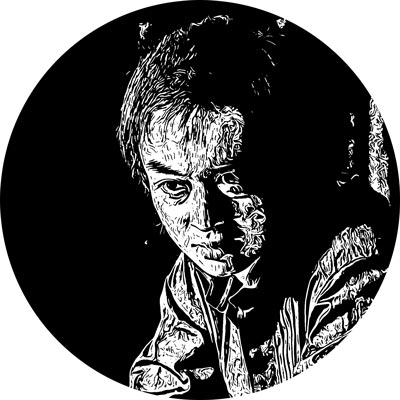
Pius Cheung
Marimba artist, composer, UO associate professor of percussion
I wish there was a bar or restaurant downtown that presents classical and experimental contemporary music concerts, much like Le Poisson Rouge in New York. The impressions and current etiquettes of going to “classical” music concerts are too stuffy. Why can’t we enjoy a nice beverage and food while we enjoy some Mozart or Steve Reich? Given some pieces might not work as well in this setting, with careful programming, this would be a great way to expose people to art music in a relaxed environment where they can really enjoy the music rather than wonder, “Am I supposed to clap now?”
As a percussionist, I dream of a city block where things are made primarily with percussion instruments — marimba bars as floor tiles, timpanis as chairs and trash cans as, well, trash cans, because I enjoy playing on trash cans quite a bit.

Halie Loren
Singer and songwriter
One of my biggest dreams for this community is for there to be more outlets for Eugene’s vast community of musicians, singers, songwriters and music fans to be able to experience the true “listening room” environment in which to create or absorb live music.
Eugene, like most cities around the country, has seen a lot of music venues fold up in the past decade and hasn’t yet witnessed an equal number of new spaces emerge in that same time period. … I would love to see this trend change drastically, and I know I am far from alone in this desire. It has been amazing to watch local music club (and true “listening room” space) The Jazz Station grow and become such a celebrated member of our music scene, finding its niche and reaching audiences thirsty for the experience of listening to jazz in its many forms in an intimate concert environment. The venue has also created a gallery space for local visual artists, using its walls to celebrate paintings, drawings, photography and other artistic creations.
Let’s create those kinds of spaces for the multitude of other music styles represented by our city’s eclectic musical community and watch how Eugene blossoms even more into the performing arts destination that we all know it can (and should) be!
On a more whimsical note, I would love to see some “public pianos” placed in some of our outdoor public spaces. I’ll admit, it’s not an idea that I can claim as my own (I first saw this concept realized in Seattle this summer, and enjoyed a few blissful moments of playing a beautifully painted piano on the ferry docks beneath the full moon), but it is one that I think could be so fitting for this arts-loving community, and would create more opportunities for “random acts of music” around our fair city.
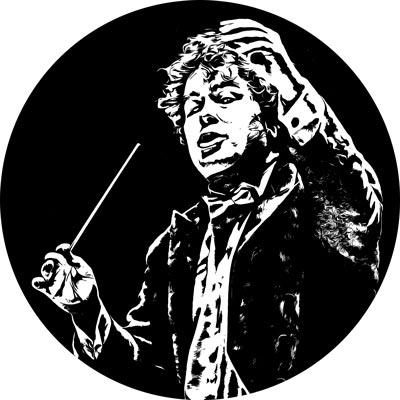
Danail Rachev
Music director and conductor, Eugene Symphony
I believe that music heals and enriches the human soul, and I dream that our music will truly reach and engage people of every age throughout our wonderful city.
In my youth, I attended a school concert in Bulgaria and immediately fell in love with classical music. I’m proud that we continue to involve more schools in our youth concerts at the Hult Center, but I dream that absolutely every child — no matter what school they attend — can see a concert. Exposure in childhood can spark a lifelong passion for music.
I also dream of performing in nursing homes, hospitals or prisons for people who otherwise don’t have the opportunity to listen to music, for whom music could be a powerful remedy. We would also welcome the opportunity to play in unexpected places like gastropubs, wineries and civic spaces — meeting people where they are to ignite their passion for music in new ways.
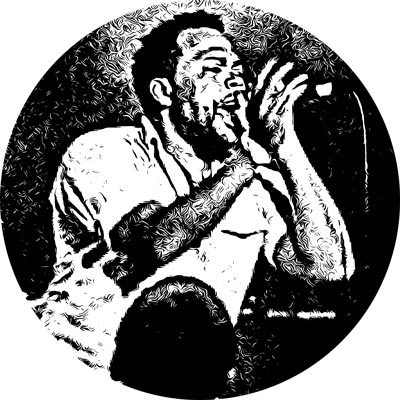
Landon Wordswell
Hip-hop artist
I hope to see different cultures celebrated in Eugene more often and taken more seriously. A child with a great sense of art, culture and surroundings can utilize the power of his or her mind to its full potential. Eugene’s a beautiful place both aesthetically and conceptually. Living off of those factors alone, however, don’t allow for growth. I hope to see a music community that participates, that cares genuinely and unconditionally. It’s not something that can happen because you or I say it to be true; it has to be practiced.
Eugene has harnessed an energy that could very well lead by example. It has become somewhat of a utopia. Before my arrival to Eugene, I lived in Chicago as well as San Antonio and was raised in the greater St. Louis area. Comparatively, the other areas I’ve been make Eugene look unreal and too good to be true. The one thing we did have in our music scenes, however, was a sense of togetherness. To be honest, with police brutality, working-class struggles and the insatiable desire to always “one-up” your neighbor, we are all aligned against one another out here. A music scene should be used to bridge the gap over such troubled waters.
I hope to see Eugene’s music scene reach kids, all ages — more all-age events, more all-age venues. Take this philosophy and embed it in the hearts of the youth as they go out into the world and spread that message. I often tour more months than I’m actually home so I hope to go out and be that walking, talking example myself.
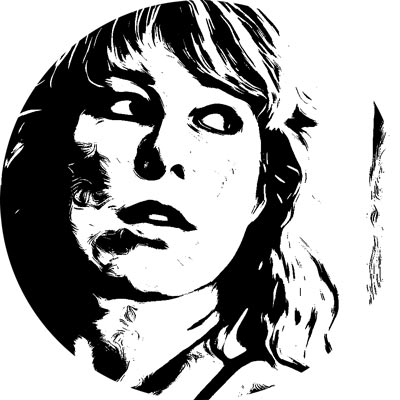
Melissa Ruth
Music teacher, frontwoman for Melissa Ruth & The Likely Stories
I would love to see this progressive city take more of a vested interest in the health of its music community. Live music is becoming increasingly radical as it is no longer mainstream entertainment. Evenings spent at home with Netflix have replaced bar bands, orchestras and dance halls.
Seeking out live music means engaging oneself on a community level. Spend your money in a live music venue and you enable artists to raise their voice: the voice of your neighbor, the voice of your friend, yourself. The city could invest. How about a rotating cast of musical ambassadors with subsidized rent for musicians-in-residence, the person responsible for playing music every Tuesday night at the local food bank, the farmers market, the airport? One of the things that I adore about Eugene is its culture of dreamers and doers, starry-eyed optimists, salty-dog realists. Supporting music is good for our community, it’s grassroots as hell and we’re just the people to do it.
Tim McLaughlin
Musician, multi-instrumentalist for Eleven Eyes
Wouldn’t it be nice to be in a community where everyone was able to make a living doing what they were passionate about? And young people could pursue their interests and dreams without the fear of “whatcha gonna do when you grow up?” Imagine how good we’d all get at our craft, and how proud we would feel to share a piece of our soul with the community. I wonder how good our work ethic would be if we really cared about the outcome of our work? One might even enjoy the process of working. Maybe it wouldn’t even be called work! Perhaps this is not possible though, as the Isley Brothers remind us, we do have “work to do.” But there are many people in Eugene who fit this dream, and they are the beacons of light in our wonderful town. But wouldn’t it be nice if everyone had that light burning inside?
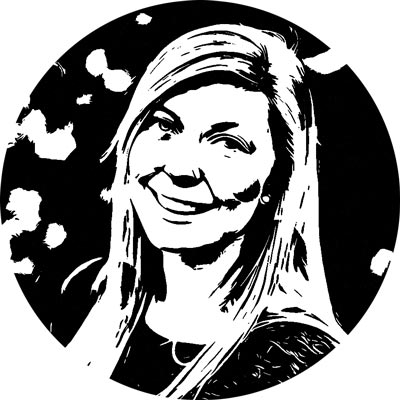
Amanda Burd
Morning Show co-host and promotions director, 104.7 KDUK
My musical background in Eugene comes from two very different places. I’ve been at KDUK for over two years now but, until recently, I was also the marketing director and a DJ at 88.1 KWVA. I booked handfuls of shows and saw many bands come through town during that time. That being said:
I dream of the DIY music scene thriving in Eugene. I dream of wonderful all-age venues, like The Boreal, having filled rooms of attendees so that the volunteer staff doesn’t have to stress about making rent every month. I want people to support local acts and hard-working touring acts alike. I’ve been in so many rooms where people step outside when their friend’s band isn’t playing; I dream of people staying in the room to see the touring bands, and giving that act a chance to wow them. Bands work very hard to play their music for you — pay to see them, and pay them the respect of watching their set.
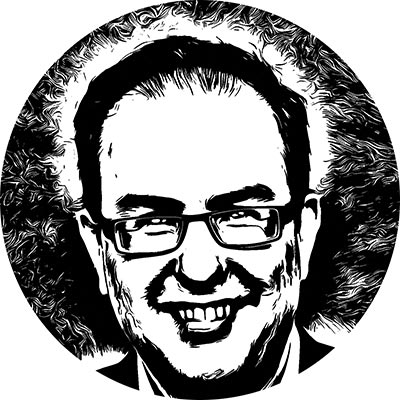
Alexandre Dossin
Award-winning pianist and UO associate professor of piano performance and piano literature
Since I arrived in Oregon with my family nine years ago, we were always pleased by Eugene’s vibrant arts scene for a city of its size. We have music of international caliber, such as the Oregon Bach Festival, the guest artists for the Eugene Symphony seasons, Chamber Music @ Beall and other great events. Considering the overwhelming beauty of this part of the world, the wonderful facilities and instruments at the UO School of Music and Dance and the Hult Center, I would love to have our city organize a major international piano festival and competition. This would bring the best pianists around the world for two weeks of great playing, inspiration and community participation.
I am sure we can do a wonderful job organizing it, welcoming the artists and the audience. Educational events could be added to the schedule, allowing our young aspiring artists to interact with international pianists.
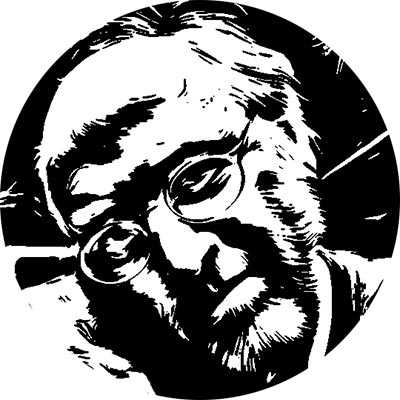
Robert Sposato
Producer, The Jazz Station
It seems to me that with all the music this town offers on any given weekend, Eugene needs an “All Music Night” once a month, much like the First Friday ArtWalk. Each venue should offer free music that patrons can drop in on and partake for as long as they care. There are many venues that I never visit, but I do have curiosity about, and many music styles that I’d like to experience first hand. This monthly event would make it possible to eavesdrop on different venues, different scenes, different generations. It would give venues a chance to appeal to the general public instead of just to their own clientele.
It’s really fun to mix with the many strata of society during these types of all-comers events, and musicians would benefit from wider exposure in circles with which they would otherwise intersect. Eugene is varied and diverse enough to provide these kind of city-wide events almost every week in art, music, theater, discourse. People need a better excuse to go downtown and take advantage of all that lives in this town. If there seems one word that I feel characterizes Eugene, it would be “tolerance.” Why not continue to put our diversity on display? With music being so universal in its appeal, an “All Music Night” sounds like a viable way to do it.
What do you dream of for our local rivers?
Joe Moll
Executive director, McKenzie River Trust
I dream a meandering river
Lifting boats, fish, adventurous kids
Swirling off log jams, carving in dirt
Toppling cottonwood
Piling up gravel.
I dream a river with treasures upstream
Flotsam and jetsam the explorer child finds
And wonders who lives up there?
What am I sending down?
I dream a river where sons and daughters
Hold seines, scoop crayfish and chub
Marvel at shapes and colors
Put some in a bucket
To catch big fish.
I dream a river
As alive in meander
As the rambling path
We make along its banks.
Rob Sydor
Professional photographer
I’d like them to be chocolate rivers, like in Wonka land.
Karl Morgenstern
Environmental management supervisor, watershed protection, property management, Eugene Water & Electric Board
My life is intertwined with the rivers and people who live along them in our area, especially the McKenzie River. My job is to protect Eugene’s sole source of drinking water so future generations enjoy the same excellent quality of drinking water as we do. I stay up at night thinking about tanker truck spills, climate change, development pressures, urban runoff and many other things that threaten our precious source of drinking water. I visit other drinking water sources throughout the West and always return to Eugene with a sense of, “Thank God we don’t have to deal with that problem.”
My dream is that in our corner of the world, we embrace the value of water and the natural systems that keep the water clean and provide us with healthy watersheds. That people in the city publicly show our appreciation for rural landowners who accept their responsibility to be good stewards of our rivers. That our economy puts value on things like riparian forests for not just the timber to be harvested or building a home with a riverfront view, but for the erosion control, pollution filtration, flood mitigation, pollination, water cooling shade and habitat values that a healthy riparian forest provides us. That we recognize that a healthy economy cannot happen without abundant and clean water and this, as much as anything else, is what attracts businesses and highly skilled people to our corner of the world. That our children have the opportunity to learn this and teach their children.
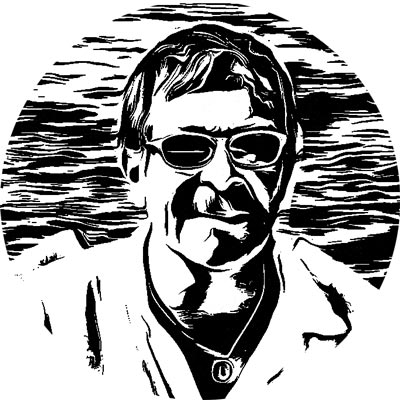
Frank Armendariz
River guide, River Trail Outfitters
A couple of seasons back a group of landowners whose property sits on the north bank of the McKenzie, just upstream from Eagle Rock, crossed a channel on to an island in front of their property and cut down all the vegetation — I guess to enhance their view of the river. One landowner was so brazen that he cleared a corridor — –trees, shrubs, everything was cut down. So now when you float past, instead of a lush green backdrop, you see a group of houses.
What’s worse is that there is little or no oversight — even when a complaint is made, land use managers appear to have no desire to issue citations or even warnings.
So I often dream about rivers where people consider the importance of the view from the water, especially on a river like the McKenzie where people come from all over to enjoy. And just think that if we did nothing more than preserve the “viewscape,” rivers like the McKenzie might be there for future generations to enjoy, too.
Dawn Lesley
Environmental engineer
I dream our McKenzie and Willamette and coastal rivers are clear and free. Our communities appreciate and care for them as physical, emotional and spiritual resources. Fish of many species are healthy and numerous, and the mighty salmon are restored to their former abundance and their former reach. Human industry and agriculture take their reasonable share of water and return clean water back to the river. The riparian areas from the headwaters to the Columbia and the ocean support native flora and fauna, as well as recreational and educational opportunities for people. Our rivers and streams are fishable, swimmable, drinkable, also navigable, enjoyable and peacefully shareable for people and other species throughout Lane County.
Christina Bellini
Ceramic artist and volunteer for social and environmental causes
I’d like to see people think about our rivers in their everyday activities and in the consumer and agricultural products they use. The products we spray, pour and apply — to ourselves, in our homes and to the land — end up in our rivers and other waterways because the particles are too small to be filtered out by municipal water treatment. To this end, I’d like to see full ingredient lists on products, so that people can make more informed choices, and even legislation that limits or bans polluting ingredients. To protect our rivers, I’d also like to see restoration of wetlands, forests and vegetative buffer zones between developed areas, cities and rivers, as well as less riverside development.
Kayla Godowa Tufti
Member of the Confederated Tribes of Warm Springs of Oregon
My dream is for things to come back full circle. For those fish runs and eels to be plentiful for all the babies to come. Clean the water. Keep it sacred.
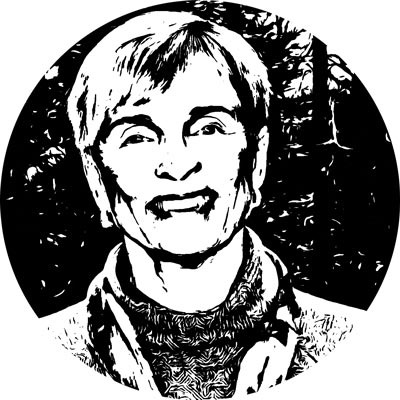
Vicki Elmer
Former director, Oregon Leadership in Sustainability, currently teaching water and the urban environment at the UO
That both rivers remain iconic images of the beauty of the Pacific Northwest — that the Willamette is free from pathogens from sewage overflows during storms from Eugene to Portland (which is still addressing the problem of combined storm and sanitary sewers); that both the Willamette and the McKenzie are free from pollutants from automobiles — which include oil and grease, acids, toxic metals and hydrocarbons that cause problems as serious as those from sewage; that both rivers are at their pre-development temperatures; that both are free from nitrogen and phosphorus pollution from agriculture and urban runoff. Finally, that both rivers are resilient in the face of climate change induced droughts and paradoxically, heavier than usual rainfalls.
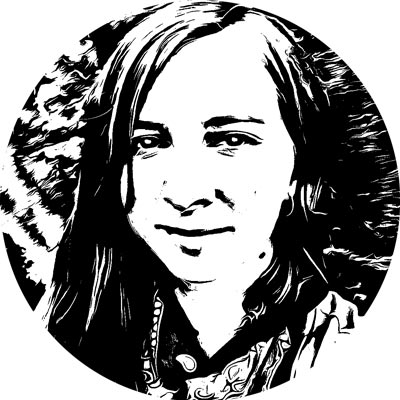
Lilia Letsch
Outreach manager, Sea Shepherd Conservation Society
For our local rivers, I dream of an unhindered passage to the sea. A free passage that feeds nutrients into our forests as the salmon return and keeps the water cool enough to provide resilience to marine flora and fauna in the face of our changing climate.
The giant dams that humans have built are having impacts beyond what we can even yet imagine. They are changing the face of this bioregion and making our landscapes much more fragile. I dream of small pebbles falling bit by bit out of a giant dam’s face, slowly but surely making way to the flow of water, until all that is left are small islands of concrete that create shade from the summer sun for the fish passing by.
The only dams that I dream of seeing in our local rivers are the ones built by furry water rodents, filtering and spreading nutrients across the lush grasslands they create, before letting the water continue on its way out to the vast open sea.
John H. Brown
EWEB Board president
My dream is that Eugene’s sole source of drinking water, the McKenzie River, stays clean and pristine. As our only current source of drinking water, it is imperative that we remain vigilant about any threats to the quality of our drinking water, whether from natural causes or man-made disasters. We are one overturned chemical tanker truck from being out of water for an extended period of time. We need to make sure we not only keep the river safe from pollution, but that we have emergency plans in place in case the worst happens. Fortunately, we do: We are prepared, both in the city and along the river, with well-thought-out emergency preparedness and response plans.
I also dream that within several years, we have developed alternate sources of drinking water, so we no longer are reliant on a single source. EWEB is on track to find other sources of drinking water and develop them.
By protecting our current source, the McKenzie, and developing alternate sources on the Willamette or elsewhere, we can continue to provide clean, abundant and reliable drinking water to the residents of Eugene.
Kitty Piercy
Eugene mayor
Our history and our future are wholly dependent on the health and life of our rivers. My dream and hope is for the McKenzie to be valued and recognized for the clean water it provides. My hope is for the Willamette to receive the help it needs to be cleaner and healthier as it travels through our state. We take for granted these water resources that are so key to the livability of this community. In a fast-changing world, glaciers and snow packs are diminishing rapidly, and water scarcity is a growing fact of life. As a community, we must look out into the future and prepare for the impacts of national water scarcity and its effects on where we live and our own water needs and responsibilities. We must better understand our ecosystem and all that depends — perhaps now more than ever — on careful stewardship of our rivers and riparian areas.
Bob Ferris
Executive director, Cascadia Wildlands
There is a sad trend with all waterways — including local rivers in Oregon — that we accept what we are given by the last generation and recognize that we will be passing on something worse to the next. Part of my dream for local rivers is that we stop and reverse this trend of intergenerational inequity and replace it with actions to give the next generation better than we got. Our gift would come with a challenge to the next generation to do the same. The rest of my dream is a return to more native species dominated and genetically stronger fisheries along with a recapturing of wildness and wild function in the face of an urbanizing landscape. The degree to which we are able to achieve and embrace this dream of wildness will be a true measure of how civilized we have really become.
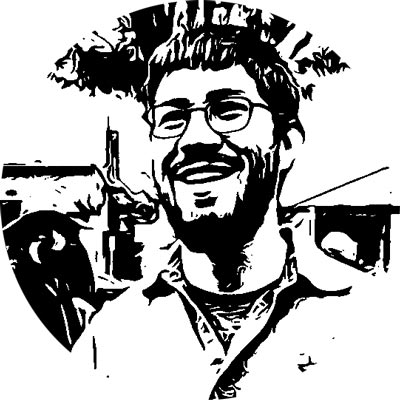
Mike McFadden
Social activist, avid backpacker and agriculturalist
Voting districts based on watersheds.
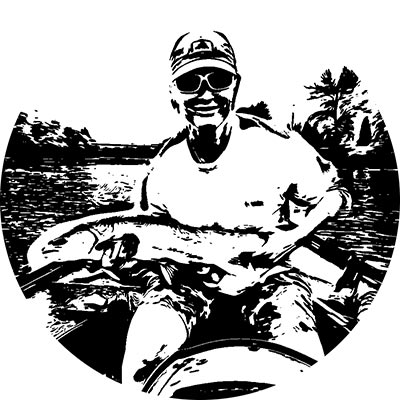
Sarah Medary
Assistant city manager and director of planning and development, city of Eugene
I was hooked on fishing the first time my red and white bobber dropped below the surface of Lost Prairie Lake in East Texas. I can still remember all of the favorite spots on that lake and the excitement I had when I could finally take the boat out by myself in pursuit of anything that would take my hook. I wasn’t picky. I just wanted to spend time on the water.
That passion has only grown with time, and I am fortunate to have found my way to Eugene where I am minutes from waters as incredible as the Willamette and McKenzie rivers. I explore these waters a lot with my fly rod and have different hopes and dreams for each of my favorite places. One of those places is the Willamette as it flows through Eugene.
This is a truly special section as it bonds our community together, north and south, and showcases decades of investment and stewardship in parks, natural resources, paths and trails. Unlike many urban rivers, it’s still a great fishery. In fact, one of my favorite days in Eugene was during the 2012 Olympic Track and Field Trials. On that day we launched our boat at Alton Baker Park as the sun was starting to rise for a quick float down to the Beltline bridge. In less than an hour, line was ripping off my reel as a “town run” steelhead decided to take my fly down the river. We cheered and high fived, took a quick photo, and then let it go to continue its journey from the Pacific Ocean. Later that same day, we were in the crowds of Hayward Field cheering on world-class athletes as they pursued a journey to London. I don’t think there’s another place in the world you can have that kind of experience in a day, and it is right here in the heart of our city.
My dream for the Willamette is that it continues to be an amazing and world-class river that all of the community can experience and enjoy. In my river dreams, we continue investing in the legacy of balancing access and stewardship so there is still steelhead to be caught in another 100 years.
Kyle Smith
Oregon National Leadership Council representative, Trout Unlimited
I dream of Oregon’s rivers once again pulsing with wild salmon, trout, lamprey and steelhead and Oregonians embracing the spiritual and economic value that these fish inject into our lives. A time when the destruction our civilization has wrought on salmon habitat has been reversed, and we no longer need to rely on hatcheries to provide fishing opportunities for bait casters, spoon throwers, fly fishermen and all types who enjoy the peace and calm one finds through a day on the McKenzie with or without a rod in hand. My children’s children sharing the experience of Lewis and Clark on the Trail of Discovery, remarking at salmon runs so thick that you could walk across the river on their backs.
I dream of a time when we no longer view ourselves as separate from our rivers, but as members of a diverse community of plants, animals, insects and fish that rely on rivers as the lifeblood of our well-being.
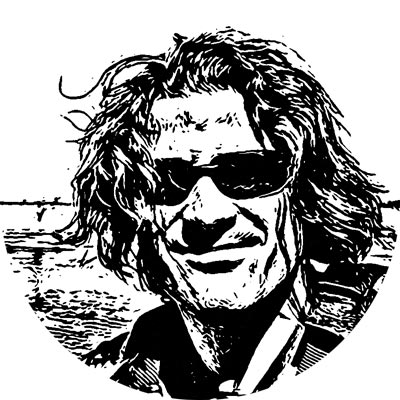
Travis Williams
Willamette Riverkeeper and executive director
I dream of a vibrant and healthy Willamette River system. Let us find our way to a naturally functioning floodplain from south to north. Let us continue to increase public lands along the river, hearkening back to the original intent of the Willamette Greenway Program (hatched in Eugene!).
Let us protect and enhance our cold, clear waters that feed the river system, and let us successfully grapple with our history of contamination, and be wise enough to deal with the array of emerging contaminants that can impact the health of both people and wildlife — such as flame retardants.
I can only hope that people will continue to connect with the Willamette and other local rivers in greater numbers, and realize the beauty and wildlife that can be experienced. May they come to know names like Sam Daws Landing, Camas Swale, Tripp Island, Buckskin Mary, Norwood Island and many more. Every middle school student in our area should spend at least one night on a river trip on the Willamette, connecting science curriculum to the Wild Willamette.
Let us reduce the impact of our infrastructure, enabling native fish to pass upstream and down in far greater numbers. This means we must create better fish passage at the U.S. Army Corps dams on the McKenzie, Middle Fork, North and South Santiam, and other tributaries. At some point in time, perhaps we can consider the useful lifespan of some dams and remove them when they have served their purpose.
Let us clean up the 10-mile Superfund site in Portland, nearly 170 river miles from Eugene and Springfield. Every migratory fish that leaves the southern Willamette Valley has to pass through that area, which today holds pollutants such as PCBs, heavy metals, the breakdown products of DDT and more.
This river is there for all of us. Many people have worked hard over the decades to protect its water quality and to restore its habitat. We have a chance in the next 20 years to take a final leap forward for the river that will result in huge gains for healthy habitat, clean water and our connection to the river.
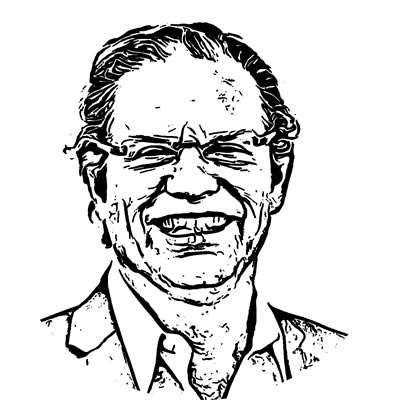
Kevin Matthews
Community advocate
I dream of the Willamette River Headwaters, the great sweep of rugged watershed valleys across East Lane County, from the Mohawk and McKenzie to the Middle Fork, South Fork and around to the Long Tom, rising along the Cascade ridge and tumbling down to Willamette Valley bottomland, recognized as the precious, connected and productive biogeographical province that it is.
Once again the headwater creeks will teem with wild salmon, spawning in the shadows of grandmother trees, as our forestry and farming become clean and gentle enough to coexist robustly with the natural bounty of this Oregon.
East Lane County will be celebrated, visited and cared for passionately, with people of all sorts renewed in the spirit and beauty of our great outdoors, among ancient woods renewed in the vital work of rebalancing our atmosphere.
Doug Quirke
Director, Oregon Clean Water Action Project; Environmental & Natural Resources Program research associate, UO School of Law
When the Clean Water Act became law in 1972, it provided for a “temporary” permitting system for point source discharges of pollution, and included a goal of eliminating all discharges of pollution to waters by 1985. Today, we have close to 1,000 permitted discharges between the upper reaches of the Willamette Basin and the Portland area (i.e., not even including the Portland area).
My dream for our rivers is that the government agencies that are supposed to serve as trustees for our waters will make that 1985 goal a real part of the conversation in fulfilling their fiduciary duties to present and future generations. We also need to do a much better job of providing for those in our community who have the least, many of whom end up in camps on the banks of our rivers.
Last (but certainly not least), we need to get a handle on climate change. Anything we do in the way of protecting our rivers (or forests, or endangered species, etc.) will very likely be futile over the long term as a result of climate change. Here in Eugene, the vast majority of our electricity comes from non-greenhouse gas emitting sources (not that we all couldn’t stand to reduce our electricity consumption), and most of our carbon footprint comes from goods and food (58 percent) and transportation (31 percent). Are you really being the change you wish to see in the world when you’re flying somewhere for a vacation (flying has a carbon footprint similar to driving a Hummer), or buying the latest iThing? Even a Prius is doing the same thing as a non-hybrid, albeit at a slower rate: converting each and every 6.3-pound gallon of gas into 20 pounds of CO2.
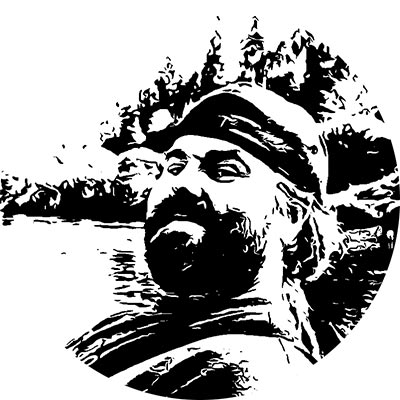
Randall Bonner
Coastal Conservation Association member, angler and outdoor writer
Personally, I think it would be great to develop more local fishing opportunity. Our only stocked trout pond, E.E. Wilson, is within view of the dump and an already awful place to fish that now requires a parking pass from Oregon Department of Fish and Wildlife to access a half-mile-long trail to the water. There’s not an abundance of game species on the Mary’s River, and in spite of the successes from watershed council projects seeing new returns from salmonids, the Calapooia is over-run with pikeminnow and undersized smallmouth bass that consume everything in their path. The Luckiamute rivers are bait restricted, and none of these waters have hatchery-supported harvest programs to provide fishing opportunity. If it’s possible to bring Coho back to Crystal Springs Creek in Westmoreland Park in Portland, dreams of fisheries closer to town aren’t so far fetched.